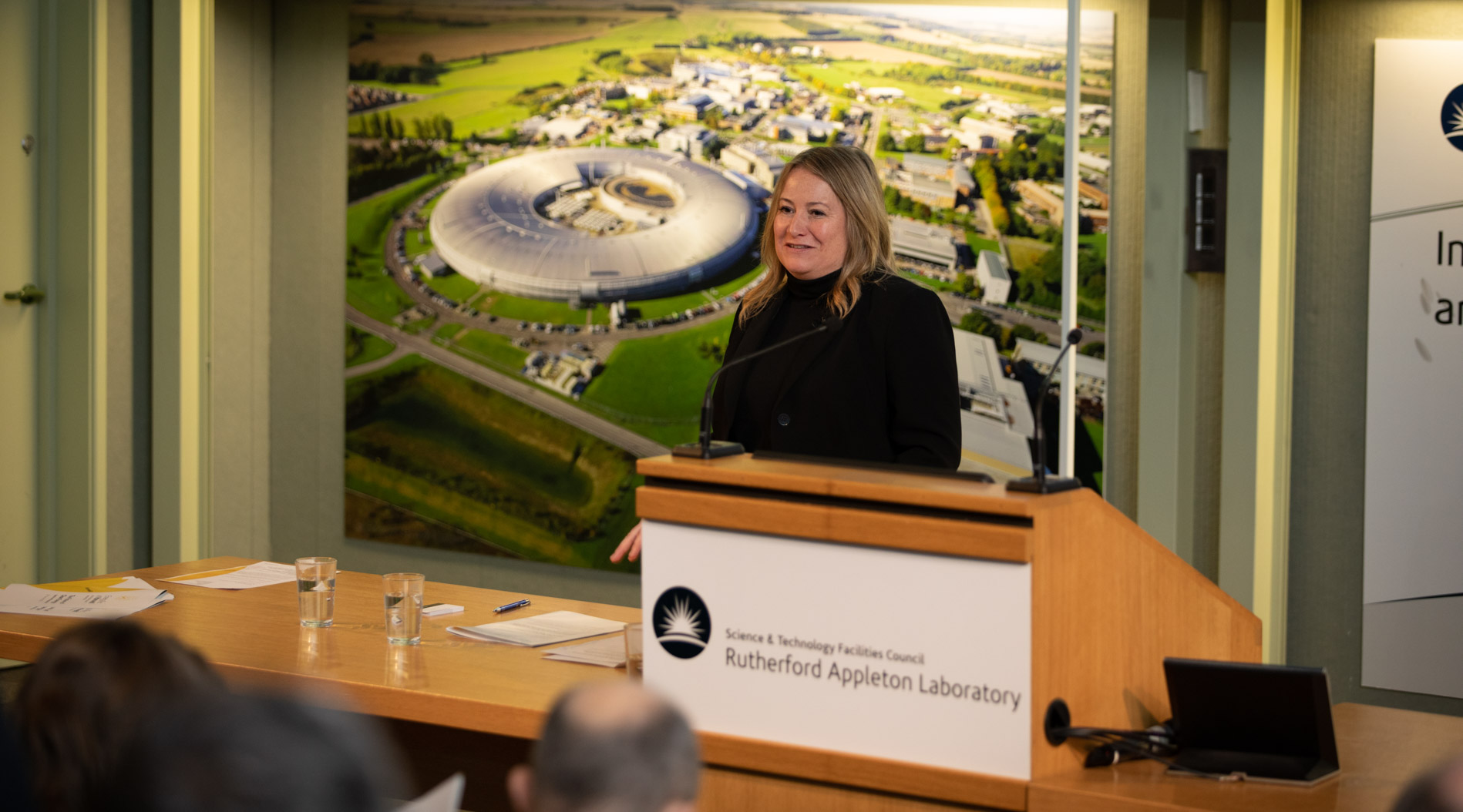
Energy innovators invited to establish the Harwell Technical Living Laboratory to tackle the climate crisis
Harwell Campus is calling for UK energy innovators to join the fight to mitigate climate change with next generation energy solutions. The invitation, announced today, is open to organisations with an interest in creating global-impact energy solutions. They will work with Harwell Campus to establish a Technical Living Laboratory which will allow new technologies to be piloted in a real-working environment – embedded into the onsite infrastructure at this science and technology Campus.
“An increased push for energy efficiency, renewable energy technology, electric mobility along with the growing digitalisation movement and a universal carbon pricing structure would speed up a carbon free future” says Emma Southwell Sander, Harwell EnergyTec Cluster Manager. “To be successful, we need to create an environment where passionate innovators can collaborate, test and get their solutions into market quickly.”
The Living Lab Opportunity
The Harwell Technical Living Lab will accelerate the adoption and accessibility of pioneering technology solutions including connected and autonomous travel, green fuel solutions, and integrated energy systems, to support industry goals and enhance healthier living amongst UK communities. Furthermore, by drawing on expertise from its thriving EnergyTec Cluster, now comprising 59 pioneering energy organisations, including the Faraday Institution, Harwell will remain committed to supporting the UK in reaching national carbon targets and reducing greenhouse gas emissions to almost zero by 2050.
Whilst knowledge-rich Living Labs are common in academic institutions, it is crucial that the concept is implemented on a broader scale, bringing together innovators in UK energy with government bodies with decisive power to tackle the urgent clean energy and climate crises. Importantly, providing a real-life environment in which to develop products that are mature enough for mass-market roll-out is vital to success and rapid uptake by industry – Harwell has the physical space, the people and the facilities to make this possible.
Despite the global push to adhere to climate change reduction targets, such as in the Paris Agreement, the International Energy Agency predicts that global energy demand will rise by 1% year-on-year.
Dr Barbara Ghinelli, Director, Harwell Campus Business Development and Clusters, STFC-UKRI, adds, “With its ‘Technical Living Lab’ status, world-leading facilities and diverse knowledge and skills base, Harwell can be a driving force in helping the UK realise its national carbon targets and reduce greenhouse gas emissions to almost zero by 2050.”
Collaboration to tackle major energy challenges: Case studies
Of the ~200 organisations within the Harwell ecosystem, 57 of these (public and private) form the Harwell EnergyTec Cluster and are working on clean and green energy solutions. One such company working to reduce national carbon emissions is Qdot, which is exploring ways to lessen the charging time of electric vehicles. Dr Jack Nicholas, Director at Qdot Technology, says: “One of the fundamental challenges holding back the mass uptake of electric vehicles is their long recharge times. Qdot is collaborating with corporate partner, AMTE Power, to develop technology that will address this challenge, with the aim of reducing recharge times by a factor of five. Innovations in this area could be the catalyst for societal change in the UK, with citizens moving away from cars that continually pollute not just the country but the planet. Being situated at Harwell grants us the access – and the funding – to explore these issues in real depth.”
Businesses working at Harwell also have the opportunity to collaborate with organisations from its HealthTec and Space Clusters. One such company is Archangel Imaging, which has recently gone into partnership with UAVAid to help tackle the global challenges of energy security and infrastructure maintenance. Chris Webb, Business Development & Partnerships Director at Archangel Imaging, says, “Collaboration – both in the networking and cross-cluster sense – is intrinsic to working with, and being a part of, the team at Harwell. One project we are working on with UAVAid, one of the UK’s leading UAV tech developers, is creating drones that can be used to monitor energy infrastructure such as gas pipelines and powerlines. These UAV will (semi) autonomously fly over areas of interest, taking a continuous stream of photography which is analysed in real-time by AI and which can alert the Ground Control System of any anomalies.”
The cost of testing new technology and finding the expertise needed to take energy companies’ innovations to the next level can be barriers to important research into reducing global carbon emissions. The Science and Technology Facilities Council (STFC) is helping companies overcome these barriers by providing funding to collaborative projects across Harwell’s three Cluster – Space, EnergyTec and HealthTec.
Dr Hamish Nichol, Engineering Lead at Reaction Engines which is involved in one such collaborative research project, says; “Reaction Engines is currently working with the UK’s Science and Technology Facilities Council (STFC) to investigate whether combining its world-class thermal management technology with the STFC’s novel ammonia catalysis concept could pave the way for the first zero-carbon-fuel jet engine, which could drive future aircraft and power generation systems. One of the striking things about this project, and a symptom of both partners being located nearby, is the speed of the collaboration; corporate partnerships can take months of form-filling in which time there can be communication issues and staff can even change. Being located near to the STFC means that this research, which could be hugely impactful to the UK energy and transport sectors, can happen in a fraction of the time.”